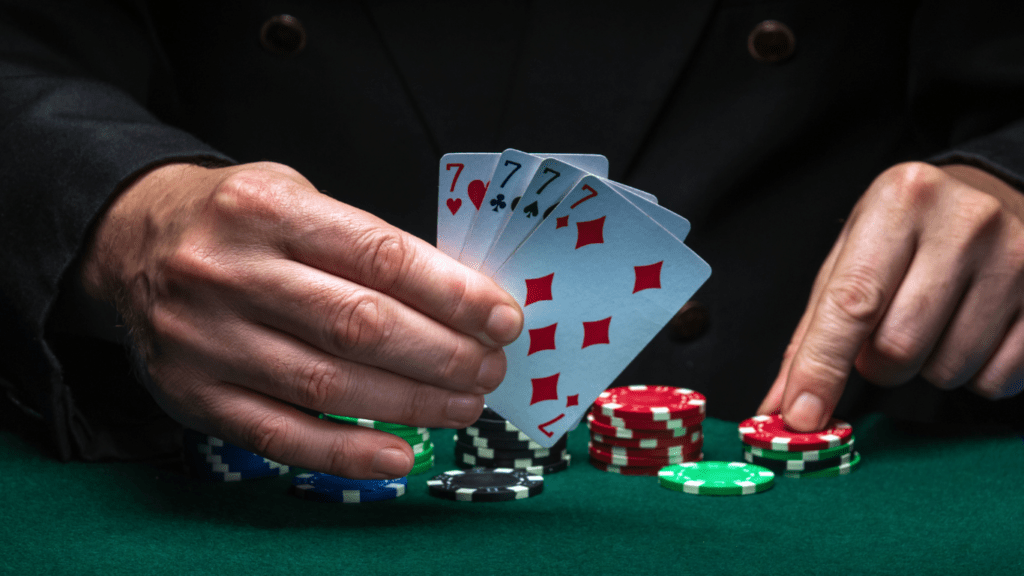Understanding Gambling: Personal Choice or Social Issue?
Gambling offers a thrill seeking opportunity for individuals craving excitement and the potential for wealth. Choices made by individuals in this context reflect personal freedom and decision-making. Observing gambling as purely a personal choice involves recognizing one’s autonomy. For instance, people often engage in activities like betting on sports events or playing casino games for enjoyment or financial gain.
Social perspectives highlight the broader implications of gambling. Societal influences and the available environment shape many gambling behaviors. Advertising and cultural acceptance contribute to gambling’s prevalence. Acknowledging gambling as a social issue involves examining its impact on communities. Problem gambling can lead to financial debts, affecting families and social welfare systems.
Balancing personal freedom and societal impact requires understanding both aspects. Individual rights and societal expectations intersect in complex ways. Here, responsible gambling practices and regulations play critical roles. These mechanisms aim to protect vulnerable individuals while respecting personal choices.
Legal institutions also play a significant role in framing gambling as a social issue. Regulations may restrict or enable specific gambling activities which reflect societal values and norms. Legislation aims to mitigate negative impacts while preserving individual rights to participate in gambling as a personal choice.
Decision-making in gambling involves both personal and societal factors. Recognizing this duality is essential for addressing concerns and implementing effective measures. Encouraging dialogue between stakeholders, including policymakers and community leaders can help balance personal freedoms with social responsibilities.
The Personal Choice Perspective
Gambling offers individuals the liberty to decide how they spend their time and money. It’s crucial to examine the role of individual freedom in choosing to gamble.
Individual Freedom and Responsibility
Individuals have the right to engage in gambling activities as a form of personal entertainment. This freedom supports the idea of autonomy, where each person evaluates their values and risks, opting to gamble based on personal preference. While it’s a right, there is responsibility in ensuring that gambling doesn’t harm one’s financial well-being or relationships. Responsible gambling practices include:
- setting limits on spending
- recognizing problem behaviors
- seeking help if gambling becomes unmanageable
Psychological Factors
Several psychological aspects influence a person’s decision to gamble. These include the thrill of risk-taking, the expectation of rewards, and cognitive biases like the illusion of control or the gambler’s fallacy. Personality traits, such as a predisposition towards impulsivity or sensation-seeking, also play critical roles. Understanding these factors helps individuals make informed choices and the effects of gambling on their mental health. Recognizing triggers and maintaining awareness can empower players to engage in enjoyable and controlled gambling experiences.
The Social Issue Perspective

Gambling extends beyond individual experiences, affecting economic stability and community welfare.
Economic Consequences
Problem gambling drains resources from vital areas. According to the National Council on Problem Gambling, the US economy loses around $6.7 billion annually due to gambling-related issues. These include lost productivity, increased healthcare costs, and higher crime rates. Addressing gambling’s economic impact requires coordinated efforts to balance financial benefits from gambling taxes against these societal costs. Regulatory frameworks aim to mitigate economic damage, promoting safer gambling environments.
Social and Community Impact
Communities often bear the brunt of gambling-related problems. Rising crime rates, family disruptions, and mental health concerns strain social services and resources. The ripple effect of gambling addiction is evident in increased domestic violence incidents and child neglect cases, as noted by the American Psychological Association. Community support networks and educational programs can help mitigate these issues. Encouraging dialogue and resource sharing strengthens community resilience against gambling’s adverse effects, fostering a more supportive environment.
Regulatory and Legal Aspects
Gambling’s classification as a personal choice or social issue often depends on regulatory and legal frameworks. Different jurisdictions have diverse approaches to governing gambling activities.
Gambling Laws and Policies
- Gambling laws vary significantly across regions.
- In the US, federal and state governments hold authority over gambling regulations.
- Some states, like Nevada, embrace gambling as an economic asset, offering various legal gambling options.
- Others, such as Utah, have a complete ban, reflecting different cultural and societal views.
- Internationally, countries like the UK implement strict regulations through bodies like the UK Gambling Commission, ensuring fair practices and protecting consumers.
- These laws address aspects such as age limits, licensing requirements, and advertisement restrictions to mitigate potential harm while promoting responsible gambling.
Role of Government in Regulation
Governments play a crucial role in regulating gambling to balance economic benefits and social costs. They impose licensing processes for operators, ensuring compliance with ethical standards and preventing illegal activities. Regulatory bodies often enforce measures like self-exclusion programs and mandatory warning labels to protect vulnerable individuals. Governments also generate revenue through gambling taxes, which can fund public services but require careful management to avoid over-reliance. Public health campaigns, driven by governmental initiatives, aim to raise awareness about problem gambling, illustrating the dual purpose of regulation in managing both industry growth and societal welfare.
Balancing Personal Choice and Social Responsibility
Gambling presents a unique challenge in aligning individual freedoms with broader societal welfare. Individuals often view gambling as a personal choice, driven by autonomy and the desire for entertainment. Many people perceive the ability to gamble as exercising their right to personal freedom, where they’re free to decide how they utilize their resources. However, this viewpoint requires examining the impact on a larger scale.
Community well-being often takes a hit when gambling becomes prevalent. If several people develop gambling issues, there are consequences not only for them but for their families and communities. Economic costs arise from increased healthcare needs, lowered productivity, and potential criminal activity linked to financial desperation. To address these concerns, frameworks that support responsible gambling help mitigate negative influences on society.
While personal choice remains integral, individuals engaged in gambling are encouraged to adopt regulated practices. This can include setting financial limits, seeking help when needed, and participating in awareness programs. By doing so, they can enjoy gambling responsibly while avoiding detrimental behaviors. These strategies not only safeguard individual health and well-being but protect the community from associated risks.
Stakeholders including legal institutions, community organizations, and individuals themselves, play critical roles in balancing personal freedom and social responsibility. By promoting dialogue and collaboration, it’s possible to establish a sustainable gaming environment. This approach helps manage gambling as both personal leisure and a societal responsibility, ensuring community interests are respected alongside individual rights.



 Cher Peters – Senior Gambling Strategist & Responsible Gaming Advocate
Cher Peters plays a pivotal role as the Senior Gambling Strategist, combining her extensive knowledge of gaming tactics with a commitment to responsible gambling. She specializes in crafting comprehensive guides and strategic tips designed to help players make informed, enjoyable gaming choices. Cher’s content spans from beginner-friendly tutorials to advanced playing techniques, helping players maximize their potential for success while remaining mindful of responsible gaming principles. Her expertise is particularly valued by players seeking to balance excitement with safety, making her an essential voice on Casino Champs Fortune.
Cher Peters – Senior Gambling Strategist & Responsible Gaming Advocate
Cher Peters plays a pivotal role as the Senior Gambling Strategist, combining her extensive knowledge of gaming tactics with a commitment to responsible gambling. She specializes in crafting comprehensive guides and strategic tips designed to help players make informed, enjoyable gaming choices. Cher’s content spans from beginner-friendly tutorials to advanced playing techniques, helping players maximize their potential for success while remaining mindful of responsible gaming principles. Her expertise is particularly valued by players seeking to balance excitement with safety, making her an essential voice on Casino Champs Fortune.
